ЕВРОПЕЙСКИЕ ПАРТНЕРЫ

Высшая нормальная школа (Париж, Франция), is an internationally renowned institution of higher education. It covers a broad spectrum of topics, from humanities and social sciences, to hard sciences; and promotes interdisciplinary approaches. ENS maintains a competitive selection process, welcoming the best students at the MSc level. Most of our students gain a PhD. Former students include all eight French winners of the Fields Medal, twelve Nobel Prize winners and half of the recipients the CNRS Gold Medal. ENS also hosts some of the most highly active laboratories in France. A staff of 200 foreign lecturers and post-doc researchers maintain the scientific and pedagogic life of the ENS. There are 350 administrative and technical staff who works in ENS’s Departments, laboratories, central services and libraries. Within its Departments, the ENS includes 40 research units identified as ENS, Inserm or Inria, encompassing ENS and CNRS agents as well as 300 foreign researchers and 650 doctoral students.
The Département d’Etudes Cognitives (DEC, https://cognition.ens.fr/en) is an interdisciplinary department of Ecole Normale Supérieure (ENS), at the crossroads of the humanities and social sciences, life sciences, and engineering. Training and research at DEC focus on mental abilities such as perception, attention, decision making, consciousness, reasoning, language, emotions, action, and social skills. Linking these abilities to their underlying psychological mechanisms and their genetic and neuronal bases is the goal of cognitive science. The DEC is running an innovative doctoral program in cognition “Frontiers in Cognition” that serves as an inspiration for iBrain.
The Group for Neural Theory (GNT) was founded in 2005 as part of the Départment Etudes Cognitives (DEC) at the Ecole Normale Supérieure (ENS) in Paris. It has been affiliated with affiliated with the INSERM Unité 960 (Laboratoire de Neurosciences Cognitives). The GNT recently became an inter-laboratory team in the Department of Cognitive Studies (DEC) at ENS with over 10 faculty members. The main research goal is to understand the basis of cognitive processing in the brain by identifying links between neural dynamics, neural function and cognitive abilities of the human psyche .
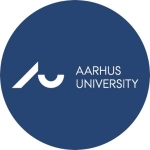
Aarhus University is a leading Nordic University and the largest one in Denmark; it is a modern research-intensive international university consistently rated among the world’s top schools. Since its establishment in 1928 the university developed into a leading public research university with nationwide and international clout across the entire research spectrum. AU has four faculties: Faculty of Arts, Faculty of Health, Faculty of Science and Technology, and School of Business and Social Sciences, organised in 27 academic departments and featuring over 40 research centres. The total student population at the university is 44,500. The current project will be anchored at AU at the Department of Clinical Medicine (Faculty of Health), which covers a wide range of subjects from basic biomedical research to clinical applications and is Denmark’s largest health science institute conducting research in almost all medical specialities and hosting a number of different research centres. The Department was formally established in 1972, and currently occupies ~30,000 sq.m. of space with state-of-the-art research facilities, such as experimental surgery rooms, onsite animal facilities, stereology, electron and two-photon microscopy, PET, CT, (f)MRI scanners, TMS, EEG and MEG labs, etc. It employs 140 full-time professors and associate professors, 300 clinical and external associate professors. The Department outputs ~ 2,100 publications annually and has a research turnover of over €80 million (external funding accounting for 60%). It maintains an extensive network of multiple international, European and national collaborations and has ample experience in working within frameworks of large EU (and other) grants. It is keen to promote development of advanced educational courses and standards and is actively involved in a few programmes of this type at undergraduate, graduate and PhD levels, including, e.g., coordination of Master-level neuroscience tuition within the Sino-Danish joint university initiative.
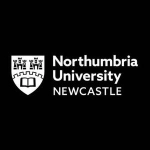
Northumbria University (https://www.northumbria.ac.uk) is an international research-rich university with a global vision and strong links to industries and businesses. Northumbria promotes excellence in interdisciplinary research and emphasizes research-based teaching. Northumbria is one of Britain’s largest universities with the total of 27,000 students in 2017 (around 5,000 postgraduates). Former students include leaders in show business, sports, and industry including Sting, Victoria Pendleton, and Sir Jonathan Ive. Northumbria is home to world leading research laboratories renowned for ground-breaking research that is responsive to the science & technology, health & well being, economic & social and arts & cultural needs of the communities. Northumbria researchers have an impressive track record of collaborating with like-minded international research, education and business partners making an impact domestically and internationally. Department of Psychology is one of the leading departments at Northumbria in terms of staff submitted to the Research Excellence Framework assessment. This is a community of active researchers in committed to excellence in research and first-class teaching. The Department has a strong record of promoting business facing professional engagement. With well-respected psychology courses accredited by the British Psychological Society, students benefit from teaching informed by the latest research from world-renowned research centres which have delivered more than £5 million of externally funded research in the last five years. Northumbria Psychology Department is one of the University’s largest single-subject departments with more than 850 students.
ВУЗы-партнеры
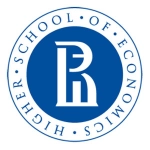
One of the Russian top universities, Higher School of Economics (http://www.hse.ru/en/) is a leader in Russian education and one of the preeminent economics and social sciences universities in eastern Europe and Eurasia. Cognitive Neuroscience is one of the main scientific priorities of HSE (https://strategyunits.hse.ru/en/neurobiology). Having rapidly grown into a well-renowned research university over two decades, HSE sets itself apart with its international presence and cooperation. Faculty, researchers, and students represent over 50 countries and are dedicated to maintaining the highest academic standards. Newly adopted structural reforms support HSE’s drive to internationalise and the groundbreaking research of our faculty, researchers, and students. Now HSE is dynamic university with four campuses, 3000 teachers and more than 40000 students. HSE is a leader in combining Russian education traditions with the best international teaching and research practices. HSE offers outstanding educational programs from secondary school to postgraduate studies, with top departments and research centres in a number of international fields. In 2017, HSE was given the ability to award its own academic degrees (under a decree signed by Russian Prime Minister Dmitry Medvedev). HSE considers it as an important breakthrough because it allows HSE to globalize the system of post-graduate education and the training offered to young researchers. It also allows the university to realize its full potential in the Russian academic market. For years, HSE has been working with RF Ministry of Education on reforming RF educational standards.
iBRAIN project is realized in HSE by the Institute of Cognitive Neuroscience (ICN) (https://neuro.hse.ru/en/). ICN is an international interdisciplinary HSE research department. Professors and researcher with different background and scientific interests work here. Psychologists, biologists, mathematics and others develop applied and theoretical studies in the field of cognitive science and neurotechnologies. ICN areas of research cover such topics as perception, communication, attention, cognitive control, memory, decision making, behavioral genetics, modeling of cognitive processes and computational neuroscience, including dynamic brain connectiomics in health and pathology. ICN’s laboratories are equipped with cutting-edge technologies such as multichannel EEG, MEG, fMRI, TMS and eye-tracking for studies of brain mechanisms of human behaviour.
ICN has its own english-speaking Master’s programme on Cognitive Sciences and technologies “Cognitive Sciences and Technologies: From Neuron to Cognition” (https://www.hse.ru/en/ma/cogito/). To participate in iBRAIN project we invite master students interesting in scientific career in neurobiology and neurotechnologies.
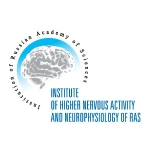 The Institute of Higher Nervous Activity and Neurophysiology of Russian Academy of Sciences (IHNA http://www.ihna.ru/en/) carries out a broad spectrum of neuroscience research dealing with both animal models and noninvasive approaches to study brain functions. Methods used in research vary from molecular biology and genome manipulations to the whole range of electrophysiological approaches, optical and magneto-resonance tomography methods of imaging brain activity. IHNA collaborates with many medical institutions in Moscow such as Burdenko Research Institute of Neurosurgery, Center of Speech Pathology and Neurohabilitation, the Institute of Medical-Biological Problems RAS. Academic staff of IHNA also acts as experts in academic and scientific councils, and giving courses in several national and state Universities including National Research University Higher School of Economics. IHNA has its own Ph.D. programme in neurophysiology for students having Diploma or Master of Science in Biology, Physiology, Physics, Medicine and Psychology. For many years IHNA provides an experimental research site for Master and Bachelor students from Moscow Universities interesting in neuroscience, in this case, specialists from IHNA act as scientific supervisors for students from other HEIs. Сollaboration with Universities at the level of student research promotes the flow of candidates to IHNA’ doctoral programme and greater inclusion of young scientists to neuroscience research.
The Institute of Higher Nervous Activity and Neurophysiology of Russian Academy of Sciences (IHNA http://www.ihna.ru/en/) carries out a broad spectrum of neuroscience research dealing with both animal models and noninvasive approaches to study brain functions. Methods used in research vary from molecular biology and genome manipulations to the whole range of electrophysiological approaches, optical and magneto-resonance tomography methods of imaging brain activity. IHNA collaborates with many medical institutions in Moscow such as Burdenko Research Institute of Neurosurgery, Center of Speech Pathology and Neurohabilitation, the Institute of Medical-Biological Problems RAS. Academic staff of IHNA also acts as experts in academic and scientific councils, and giving courses in several national and state Universities including National Research University Higher School of Economics. IHNA has its own Ph.D. programme in neurophysiology for students having Diploma or Master of Science in Biology, Physiology, Physics, Medicine and Psychology. For many years IHNA provides an experimental research site for Master and Bachelor students from Moscow Universities interesting in neuroscience, in this case, specialists from IHNA act as scientific supervisors for students from other HEIs. Сollaboration with Universities at the level of student research promotes the flow of candidates to IHNA’ doctoral programme and greater inclusion of young scientists to neuroscience research.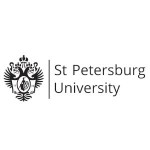 Saint-Petersburg State University (SPbSU) is the oldest university in Russia, provides diverse research and educational opportunities, with 17 research Institutes and 24 different Schools. SPbSU is one of the two major governmental academic institutes which are supported and managed directly from the Russian government. Over 25,000 students and 2,000 PhD students have enrolled annually. Faculty includes more than 6,000 professors and lecturers. The SPbSU was the first in Russia to sign the Bologna declaration more than a decade ago and since then it has advanced well in three-level education and implementation of the ECTS. SPbSU rapidly develops international cooperation in the multidisciplinary neuroscience research and education including cognitive psychology, neurobiology, epigenetics and medicine through a number of programs of the Russian Ministry of Education and Science to attract internationally renowned scientists and to establish research centers of excellence including two labs established at Psychology School – the Lab of Behavioural Neurodynamics and the Lab of Multidisciplinary Research on Childhood Development, the Project in Genome Bioinformatics and Comparative Genetics, Institute of Translational Medicine. One of the important aspects of SPbSU is the strategy of development of own scientific resource centers (http://researchpark.SPbSU.ru/en/), especially in biomedicine and neuroscience cluster. All SPbSU resources including the variety of infrastructure and research equipment, electronic databases repository, libraries, data analysis, management, and professional support services are available for the iBrain project.
Saint-Petersburg State University (SPbSU) is the oldest university in Russia, provides diverse research and educational opportunities, with 17 research Institutes and 24 different Schools. SPbSU is one of the two major governmental academic institutes which are supported and managed directly from the Russian government. Over 25,000 students and 2,000 PhD students have enrolled annually. Faculty includes more than 6,000 professors and lecturers. The SPbSU was the first in Russia to sign the Bologna declaration more than a decade ago and since then it has advanced well in three-level education and implementation of the ECTS. SPbSU rapidly develops international cooperation in the multidisciplinary neuroscience research and education including cognitive psychology, neurobiology, epigenetics and medicine through a number of programs of the Russian Ministry of Education and Science to attract internationally renowned scientists and to establish research centers of excellence including two labs established at Psychology School – the Lab of Behavioural Neurodynamics and the Lab of Multidisciplinary Research on Childhood Development, the Project in Genome Bioinformatics and Comparative Genetics, Institute of Translational Medicine. One of the important aspects of SPbSU is the strategy of development of own scientific resource centers (http://researchpark.SPbSU.ru/en/), especially in biomedicine and neuroscience cluster. All SPbSU resources including the variety of infrastructure and research equipment, electronic databases repository, libraries, data analysis, management, and professional support services are available for the iBrain project.
INDIAN PARTNERS
 University of Hyderabad (UoH), founded in 1957, is a public research University located in Hyderabad, India. The University has more than 5000 students and 400 faculties spanning across several disciplines from science, arts and humanities. UoH offers degrees at the Masters (2-year Masters and 5-year integrated Masters) and Doctoral level. The University has built up a reputation for providing high quality academic training and has been recognized through a number of awards: PURSE, given by the Prime Minister of India, a grading of A, which is the highest, by the National Assessment and Accreditation Council (NAAC). The University is counted among the top 100 in Asia in many of its academic areas of study. UoH has received several awards and honours cementing its position as one of the premier higher education institutes in India. In 2015, it received the award for the best central university in India awarded by the President of India. Several students graduating with doctoral degrees from the University of Hyderabad go on to occupy faculty and research positions in various institutes throughout India. The Center for Neural and Cognitive Sciences (CNCS) is a multidisciplinary research centre where faculty and students are engaged in research on human cognition and neuroscience. Researchers are also working on electrophysiology and behaviour in simpler organisms such as grasshopper and drosophila to elucidate the neural mechanisms leading to complex behaviour. The Centre currently offers a 2-year master’s degree in neural and cognitive science and a doctoral degree in Cognitive Science. There are 4 permanent faculty, several associated faculty from neighboring institutions and departments, about 20 PhD students and 30 masters students.
University of Hyderabad (UoH), founded in 1957, is a public research University located in Hyderabad, India. The University has more than 5000 students and 400 faculties spanning across several disciplines from science, arts and humanities. UoH offers degrees at the Masters (2-year Masters and 5-year integrated Masters) and Doctoral level. The University has built up a reputation for providing high quality academic training and has been recognized through a number of awards: PURSE, given by the Prime Minister of India, a grading of A, which is the highest, by the National Assessment and Accreditation Council (NAAC). The University is counted among the top 100 in Asia in many of its academic areas of study. UoH has received several awards and honours cementing its position as one of the premier higher education institutes in India. In 2015, it received the award for the best central university in India awarded by the President of India. Several students graduating with doctoral degrees from the University of Hyderabad go on to occupy faculty and research positions in various institutes throughout India. The Center for Neural and Cognitive Sciences (CNCS) is a multidisciplinary research centre where faculty and students are engaged in research on human cognition and neuroscience. Researchers are also working on electrophysiology and behaviour in simpler organisms such as grasshopper and drosophila to elucidate the neural mechanisms leading to complex behaviour. The Centre currently offers a 2-year master’s degree in neural and cognitive science and a doctoral degree in Cognitive Science. There are 4 permanent faculty, several associated faculty from neighboring institutions and departments, about 20 PhD students and 30 masters students. 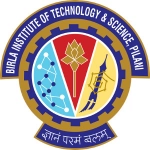 BITS-Pilani-K.K. Birla Goa Campus is a technical and science institute for higher education is located in Goa, India established in 2004. The academic course structure is governed by the university of BITS Pilani. BITS is a private institute of higher education and a deemed university. The institute offers 4-year B.E. degree programs and also 5-year M.Sc. (Honours) degrees through its dual-degree system. BITS Goa has several departments and has ~ 3000 students. BITS attract the sharpest young minds of the country with most of the students have scored in excess of 98 percentile scores in their basic study. In the Department of Biological Sciences, the Cognitive Neuroscience Lab has state of art facilities that run cutting edge projects at par with World standard norms. This Lab was built in 2015 by the institute and funded by Dept of Science and Technology, Govt of India. The most prominent research areas of the lab are Brain Computer Interface or Home Automation using EEG signals, Study of Neuromarketing Techniques, Study of Neurodegeneration, Linguistic study using EEG signals etc. The Cognitive Neuroscience Lab has Collaborated with various bodies in India and abroad and successfully been a host to International workshops and symposia like AttLis (Attentive Listener in the Visual World) and ISBC (International Symposium for Bilingualism and Cognition) and National level workshops like EMCN(Experimental Methods in Cognitive Neuroscience). The lab has many teams of students and research scholars working on understanding various aspects of cognition and the EEG correlates behind them with more interest being generated among undergraduate and graduate students every semester.
BITS-Pilani-K.K. Birla Goa Campus is a technical and science institute for higher education is located in Goa, India established in 2004. The academic course structure is governed by the university of BITS Pilani. BITS is a private institute of higher education and a deemed university. The institute offers 4-year B.E. degree programs and also 5-year M.Sc. (Honours) degrees through its dual-degree system. BITS Goa has several departments and has ~ 3000 students. BITS attract the sharpest young minds of the country with most of the students have scored in excess of 98 percentile scores in their basic study. In the Department of Biological Sciences, the Cognitive Neuroscience Lab has state of art facilities that run cutting edge projects at par with World standard norms. This Lab was built in 2015 by the institute and funded by Dept of Science and Technology, Govt of India. The most prominent research areas of the lab are Brain Computer Interface or Home Automation using EEG signals, Study of Neuromarketing Techniques, Study of Neurodegeneration, Linguistic study using EEG signals etc. The Cognitive Neuroscience Lab has Collaborated with various bodies in India and abroad and successfully been a host to International workshops and symposia like AttLis (Attentive Listener in the Visual World) and ISBC (International Symposium for Bilingualism and Cognition) and National level workshops like EMCN(Experimental Methods in Cognitive Neuroscience). The lab has many teams of students and research scholars working on understanding various aspects of cognition and the EEG correlates behind them with more interest being generated among undergraduate and graduate students every semester.